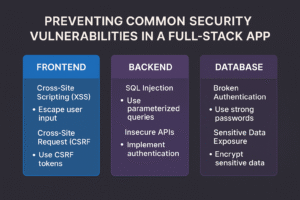The Reserve Bank of India (RBI) has imposed strict operational restrictions on the Baghat Urban Co-operative Bank, based in Solan, Himachal Pradesh, following concerns about its weakening financial condition. The central bank’s directive limits withdrawals to ₹10,000 per customer, marking another regulatory intervention aimed at safeguarding depositor interests.
According to the RBI’s official order, the bank cannot grant new loans, make advances, or accept fresh deposits without prior approval from the central bank. The decision is part of a preventive framework meant to stabilize the bank’s operations and protect customer funds.
Withdrawal Cap and Customer Protection Measures
Under the imposed restrictions, each depositor can withdraw up to ₹10,000 from their total account balance, whether in savings, current, or fixed deposits. However, before allowing withdrawals, the bank reserves the right to offset outstanding loans or dues from the available balance.
The RBI has assured customers that their deposits remain insured under the Deposit Insurance and Credit Guarantee Corporation (DICGC) scheme, which guarantees coverage of up to ₹5 lakh per depositor. This ensures that in the unlikely event of the bank’s collapse, customers can still recover their insured amount.
RBI Clarifies: Temporary Restrictions, Not License Cancellation
The RBI emphasized that these measures are temporary and do not indicate a cancellation of the bank’s license. Instead, the restrictions aim to provide the Baghat Urban Co-operative Bank with breathing space to strengthen its finances and achieve compliance with regulatory norms.
A spokesperson for the RBI noted that such steps are standard when a financial institution’s liquidity position weakens or when it fails to meet capital adequacy requirements. The bank will continue to operate under RBI’s close supervision until its condition improves.
Why the Action Was Taken
RBI interventions of this kind are typically triggered by a decline in liquidity or governance issues within a bank. Limiting withdrawals helps prevent panic withdrawals, commonly known as a bank run, which could further worsen financial stress.
By imposing these restrictions, the RBI aims to protect small depositors while giving the bank time to reorganize its finances and restore stability.
Wider Impact on the Co-operative Banking Sector
The case of Baghat Urban Co-operative Bank highlights ongoing challenges within India’s co-operative banking network, which has witnessed several similar interventions in recent years. These banks play a key role in rural and semi-urban areas but often face capital constraints and governance inefficiencies.
Experts believe the RBI’s swift action sends a strong message to other co-operative banks to maintain financial discipline and adhere strictly to prudential norms.
As the situation develops, the RBI is expected to monitor the bank’s recovery process closely. Once the financial position stabilizes, the central bank may gradually relax restrictions, allowing normal operations to resume.
For now, customers of the Baghat Urban Co-operative Bank can withdraw up to ₹10,000, with the reassurance that their deposits remain safe and insured under RBI’s oversight.
Originally published on newsworldstime.com.
Originally published on 24×7-news.com.







